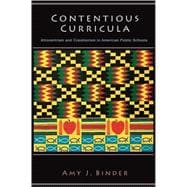
Note: Supplemental materials are not guaranteed with Rental or Used book purchases.
Purchase Benefits
What is included with this book?
| Preface | vii | ||
| One Introduction to Afrocentrism and Creationism, Challengers to Educational "Injustice" | 1 | (28) | |
| Two The Challengers | 29 | (24) | |
| Three History of the Three Afrocentric Cases: Atlanta, Washington, D.C., and New York State | 53 | (51) | |
| Four Cultural, Political, and Organizational Factors Influencing Afrocentric Outcomes | 104 | (32) | |
| Five History of the Four Creationist Cases: Louisiana State, California State, Vista, California, and Kansas State | 136 | (58) | |
| Six Cultural, Political, and Organizational Factors Influencing Creationist Outcomes | 194 | (22) | |
| Seven Making More Institutional the Study of Challenge | 216 | (29) | |
| Appendix | 245 | (4) | |
| Notes | 249 | (36) | |
| References | 285 | (12) | |
| Index | 297 |
The New copy of this book will include any supplemental materials advertised. Please check the title of the book to determine if it should include any access cards, study guides, lab manuals, CDs, etc.
The Used, Rental and eBook copies of this book are not guaranteed to include any supplemental materials. Typically, only the book itself is included. This is true even if the title states it includes any access cards, study guides, lab manuals, CDs, etc.